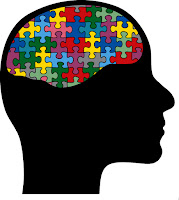By: Johnny
What is personality? Obviously we all can think of what personality is in our heads, but how would you put it into words? Personality... what is it? What is it not?
I'm currently taking Psychology 101, and from my professors lecture on personality, it's defined as important, relatively stable characteristics that account for consistent patterns of behavior. Weird, right? Not weird in the sense that that definition doesn't fit with personality because it's near spot on, but in the sense that it's weird seeing that word defined in the first place.
In psych we learned about a man named Phineas Gage. His story is fascinating and I suggest you check him out, but what he is known for is he was the first demonstration that the brain gave rise to personality. Damage to brain can cause someone's personality to drastically change without having any motor or cognitive function change or damage. A man by the name of Sigmund Freud had a psychodynamic personality theory, who's underlying assumption was that one's personality was comprised of unconscious forces, such as wishes and motives, as well as conscious forces. These two go well together when claiming that personality is not entirely deliberate.
 |
| Image Source |
Personality and communication play crucial roles in the media and communication industry. Having the ability to identify a colleagues personality and then modifying your own behavior to cater to that colleague could be a huge advantage in the professional world. The dominant view of personality in psychology is a view where personality is broken down into five dimensions. These dimensions are:
- Openness to Experience: imaginative vs. close minded
- Conscientiousness: organized vs. unorganized
- Extraversion: extroverted vs. introverted
- Agreeableness: easy-going vs. uptight
- Neuroticism: worried vs. calm
Why not resort to science when trying to get what you want in the workplace? A promotion or a raise could be a lot closer in reach than one might think.
Works Cited
Halpern, Diane, Gazzaniga, Michael, Heatherton, Todd. Psychological Science. Fifth edition.
W.W. Norton & Company. 2015.
No comments:
Post a Comment